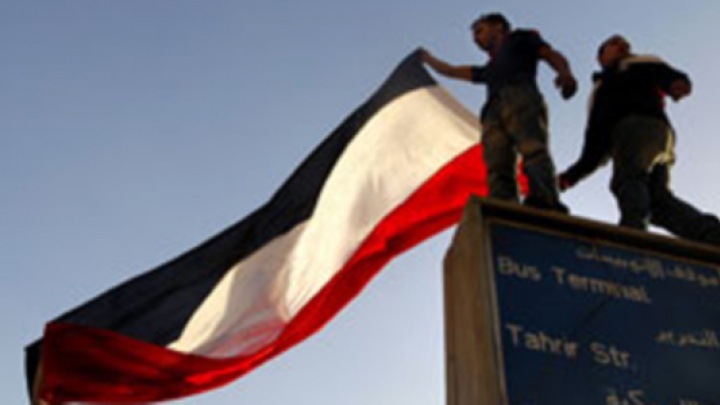Translated "Avante!" article by Luis Carapinha, member of the International Department
Mubarak has fallen following 18 consecutive days of street protests. This outcome, foreseen as unlikely until very recently, left foreign supporters of the Egyptian raise’s dictatorship on the verge of a nervous breakdown. A first wave of protest in Tunisia inspired a decisive mobilization of the people of the most populated Arab country and the main beneficiary of US military aid, only seconded by Israel. The persistent and unstoppable scale of the popular uprising, seen everywhere across Egypt, has brought to an end a 30 year-old exploitative and corrupt dynasty, which, from the beginning, was aligned with the hegemonic interests of Imperialism in the Middle East and the Zionist policy of annihilation of the Palestinian people by a string of Israeli Governments. Regardless of future developments of this situation, which remains volatile, Mubarak’s fall represents the end of an era in Egypt and a setback for the US and EU strategy of domination.
It is important to underline the overwhelming importance of the victory of the Egyptian people's struggle, which counted with the participation of a broad range of sectors. In particular, the working-class and the youth have had a central role in this process. It is also necessary to realize the extent of the accomplishments obtain so far, as the victory is still incomplete. The measures already announced by the Military Supreme Council, which has taken the reigns of power in Cairo and is headed by Marshal Tantawi - Mubarak’s Defence Minister – promoting changes in the Constitution, allowing the perpetuation of a repressive Government, including threats to strikes, as well as expressing «guarantees» to Israel, have confirmed that the Armed Forces' commands are not committed to a true transition to democracy. It seems clear that only cosmetic changes will be promoted while keeping the central core of the Regime intact. This strategy, reflects the concerns – and the overt interference – of the USA, as well as of other imperialist forces – which, as is known, have quite a lot at stake here, in particular if deep and progressive changes would occur in such an important country that has a key role in the region and in the Arab world.
This is the context in which, in the last few weeks, Obama’s pro-democracy rhetoric, broadcast by many of the system's followers, gained a comedy status. The US hypocrisy and duplicity recall the 2009 Honduras coup. However, the growing determination of the masses in the streets of Egypt has exposed the disorientation that reigns in Washington. The US started by undervaluing the ongoing protests, quickly changed their mind supporting a “democratic transition” and even the “urgency” of an “immediate transition”. Eventually, “concerns” that [Mubarak’s] early departure would “undermine democracy” were expressed… At the end of the day, with Mubarak out of the picture, not very much could be said or done and Vice-President Biden eventually declared that Mubarak’s resignation was a “crucial moment in the world’s history”.
Playing on different chessboards and spurring on team B horses, imperialism did everything to try to stop, weaken and co-opt the Egyptian revolt. The twitterized narrative, the cult of informality and spontaneity, widely amplified by the mainstream media, were part of this vast diversion campaign. The more social struggles are portrayed as a meaningless and innocuous circus, the more their supposed and abstract revolutionary character is proclaimed. Trying to transform emancipation struggles into mere interactive clicks on social networks, has little to do with communication issues –it is the attempted denial of social revolution.
The people’s perspective is different: protests, pickets, strikes against low salaries and instability were a constant in Egypt since early this week. Political organization of the progressive and revolutionary forces and their connection to the struggle for the masses' yearnings for justice and social progress will be decisive to construct a free, sovereign and democratic Egypt. The USA fights their corner and sends Admiral Mullen to the area. However the spectre of the Arab revolt hovers, from Morocco to Bahrain.
